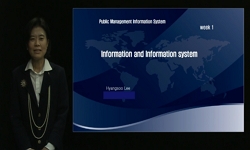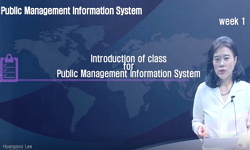본 연구는 전자정부가 정부신뢰를 형성하는 과정에서 과학기술에 대한 인식 요인, 특히 기술에 대한 위험인식과 반과학적 태도가 미치는 영향을 종합적으로 고찰하였다. 분석결과, 전자정...
http://chineseinput.net/에서 pinyin(병음)방식으로 중국어를 변환할 수 있습니다.
변환된 중국어를 복사하여 사용하시면 됩니다.
- 中文 을 입력하시려면 zhongwen을 입력하시고 space를누르시면됩니다.
- 北京 을 입력하시려면 beijing을 입력하시고 space를 누르시면 됩니다.

반과학은 전자정부의 정부신뢰 창출을 어떻게 제약하는가?:전자정부의 정부신뢰 제고과정에서의 기술위험과 반과학(Anti-Science)의 조절효과 탐색 = How Does Anti-Science Constrain the Enhancement of Government Trust Through E-Government?: Exploring the Moderating Effects of Technological Risk and Anti-Science in Enhancing Trust in Government through E-Government
한글로보기부가정보
국문 초록 (Abstract)
본 연구는 전자정부가 정부신뢰를 형성하는 과정에서 과학기술에 대한 인식 요인, 특히 기술에 대한 위험인식과 반과학적 태도가 미치는 영향을 종합적으로 고찰하였다. 분석결과, 전자정부역량은 정부신뢰를 높이는 핵심 요인으로 작동하나, 반과학적 태도가 강할수록 그 효과는 약화되는 것으로 나타났다. 이는 기술을 기반으로 작동되는 전자정부 시스템이 지닌 효용도 그 기반이 되는 기술에 대한 인식적 요인에 따라 충분히 발현되지 못함을 시사한다. 본 연구를 통해 행정학 연구에서 상대적으로 간과되어 온 기술에 대한 논의를 접목함으로써, 전자정부 시스템과 이를 다루는 정부의 역량 뿐 아니라 기술에 대한 시민들의 가치・신념이 전자정부의 정부신뢰 창출 과정에서 중요하게 작용함을 확인하였다. 결국 전자정부 성과를 극대화하기 위해서는 공공부문의 기술적 역량 강화는 물론, 시민들의 이성적이며 기술에 대한 합리적 태도가 중요한 것이다. 또한 이것에 영향을 미치는 과학적 정보제공과 소통, 갈등관리를 강화하는 전략이 함께 모색되어야 한다.
다국어 초록 (Multilingual Abstract)
This study comprehensively examines the impact of perceptions of science and technology, particuraly risk perception of technology and anti-scientific attitudes, on the formation of government trust in the context of e-government. The analysis reveals...
This study comprehensively examines the impact of perceptions of science and technology, particuraly risk perception of technology and anti-scientific attitudes, on the formation of government trust in the context of e-government. The analysis reveals that while e-government capabilities serve as a key factor in enhancing government trust, their effectiveness diminishes as anti-scientific attitudes intensify. This suggests that the utility of e-government systems, which operate based on technology, may not be fully realized due to cognitive factors related to technology perception. By integrating discussions on technology-an area relatively overlooked in public administration research-this study confirms that not only e-government systems and government capacity but also citizens values and beliefs regarding technology play a crucial role in shaping government trust through e-government Ultimately, maximizing the outcomes of e-government requires not only strengthening technological capacity in the public sector but also fostering rational and informed attitudes toward technology among citizens. Futhermore, strategies to enhance the provision of scientific information, communication, and conflict management should be pursued in parallel to influence these perceptions effectively.
동일학술지(권/호) 다른 논문
-
- 한국지방정부학회
- 주효진
- 2025
- KCI등재
-
인권의 제도화 과정에 관한 연구:지방정부간 확산 과정에서 고독사 조례의 제도화 수준 분석
- 한국지방정부학회
- 박준희
- 2025
- KCI등재
-
정신건강증진 및 정신질환자 복지서비스 지원에 관한 광역자치단체 조례 분석*
- 한국지방정부학회
- 문경미
- 2025
- KCI등재
-
지방정부 협력을 통한 수소항만 도입과 정책 활성화 방향
- 한국지방정부학회
- 우양호
- 2025
- KCI등재




 KCI
KCI DBpia
DBpia




